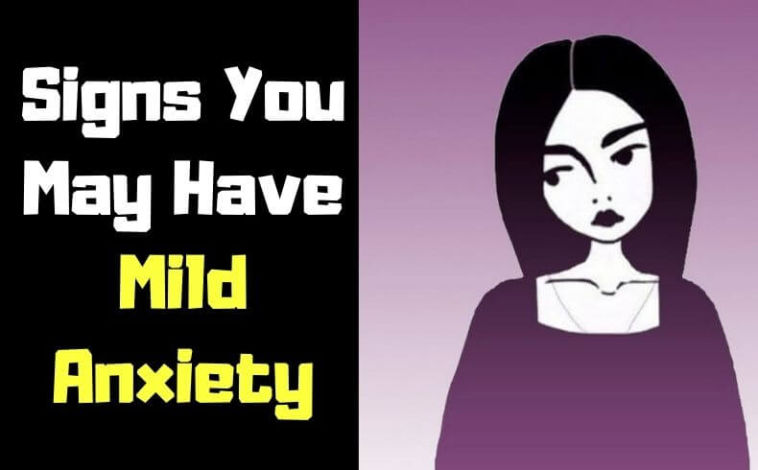How can you tell if you’re experiencing mild anxiety? In most cases, there are some very obvious signs that your anxiety level is rising, such as sweating or feeling nervous and jittery.
Other common symptoms include difficulty breathing, muscle tension, and feeling as though you’re on the verge of an emotional breakdown (even when things are going well). While mild anxiety might not feel like the end of the world, it can still cause serious problems in your life if left unchecked.
The good news is that these problems can be prevented with early intervention.
The Condition
What if I told you that I was feeling a little anxious? You might think, Oh, that’s not so bad. I’m sure it will be fine! But what if I explained to you exactly what mild anxiety feels like?
We tend to gloss over or ignore some of these symptoms because they don’t seem severe enough to report. In truth, ignoring mild anxiety can have serious consequences—including an increase in symptom severity of disorder onset.
Sleep Disruption
In general, sleep disruption is a sign of mild anxiety. There are many ways that sleeping patterns may be affected by anxiety.
For example, you may wake up during the night feeling like your heart is racing or feel restless and unable to get back to sleep. Sometimes people with mild anxiety will experience panic attacks while they’re in bed at night.
Unintentional Weight Gain
While a bit of weight gain during times of stress isn’t uncommon, unintentional weight gain often stems from something else—like emotional eating. But some research shows that people with mild anxiety are more likely to gain weight after stressful situations than those without anxiety.
Though researchers don’t fully understand why it happens, they think it may have something to do with certain people using food as a coping mechanism or distraction while going through stressful periods in their lives.
Intrusive Thoughts
If you’re nervous about something, you might find yourself having a hard time concentrating or focusing on anything but your anxiety. In fact, your brain may even produce intrusive thoughts related to that anxiety.
This can cause more anxiety, as well as extreme stress—which could lead to even more intrusive thoughts. Those are all signs of mild anxiety, and it might be worth it to look into them further with a therapist if they persist for longer than a couple of weeks or interfere with your day-to-day functioning.
Concentration Problems
It’s normal to feel a little scatterbrained when you’re anxious—it’s your body’s way of keeping you safe in an emergency. But concentration problems, on top of physical symptoms like fatigue and dizziness, are common with severe anxiety disorders.
If they get bad enough, they can make it hard to hold down a job or keep up with schoolwork (or both). If it gets to that point, consider finding someone who can support you in managing your condition.
Impatience/Irritability
Anxiety has a way of bringing out impatience and irritability, both of which are common in everyday life. But if these feelings are so pervasive that they interfere with your daily functioning, then you may be suffering from anxiety—the clinical kind, not just ordinary stress. Here’s how to tell.
Nervousness/Anxiety About Anxiety
It’s not unusual to be nervous or anxious when facing a big situation, but what if those feelings don’t go away? If you find yourself nervous or anxious about anxiety, here are three things you can do
Stressful Situations and Panic Attacks
Stressful situations and events can trigger a panic attack. While it’s normal to feel nervous in certain situations, if you begin to feel extreme, overwhelming fear in an everyday situation, there’s likely something going on that we should address.
Dental Problems (Sensitive Teeth, Gum Recession, Receding Gums, etc.)
If your teeth are sensitive, make sure you are flossing twice a day and brushing for at least two minutes. It’s also a good idea to schedule regular visits with your dentist to ensure that there is no bacteria buildup around your teeth.
Additionally, have your dentist check whether you have gum recession or receding gums—it’s best to nip these problems in the bud before they cause more serious issues.
Muscle Pains (Backaches, Stiffness in Body)
While stress causes mild anxiety in most people, it’s not a pleasant experience. This is why many people who suffer from mild anxiety have backaches or body stiffness that simply won’t go away.
Muscle pains and soreness in your muscles can be a good indication of mild anxiety, as well as other health issues. If you keep experiencing muscle pains and aches, it might be worth seeing a doctor to ensure that there isn’t something else wrong with your body.



